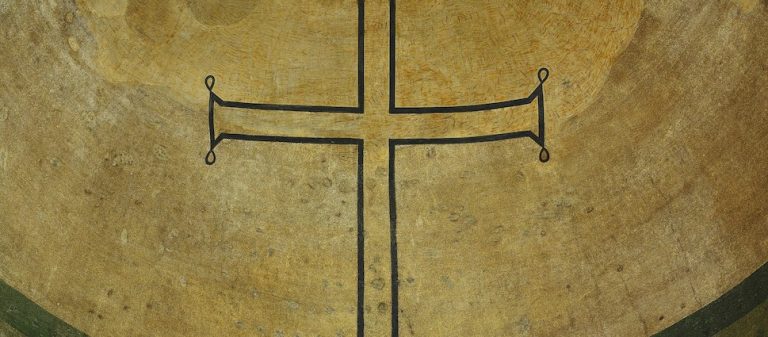
A Worthy Goal
Every organisation needs a worthy objective to thrive, and—as we saw previously—the Puritans were biblical in their approach to family life. This meant that the Puritan family took its cue from God’s word and zealously sought it. This goal directed everything they did and every decision they made.
So what was their objective?
The glory of God! They believed 1 Corinthians 10:31 with all their heart: “So, whether you eat or drink, or whatever you do, do all to the glory of God.”
Together, the Puritan family enjoyed the pursuit of God’s glory in all of life. The only worthy object of the soul was God, so he was to be the scope, end, and purpose of their entire lives. As one Puritan put it: “A Christian may and ought to desire many things as means, but God alone as his end, as his last end.”
So as a family they would enjoy sleep, but only to refresh the body for pursuit of the glory of God; the children would enjoy recreation and innocent play, but in an orderly manner and in a right spirit, so that God might be glorified therein; they would enjoy good food and beer, cider and even whiskey for “the good cheer of our bodies”, but never to excess, and always remembering that God is the giver of every good and perfect gift – all then must be enjoyed for his sake and to his glory.
Crucial to the shared pursuit of God’s glory in the family was the recovery of the doctrine of marriage. This was a pivotal element in Puritan thought. The Catholic Church had taught that marriage was in some sense inferior to singleness, and that the only good purposes of marriage were to produce children and to help men who cannot control their sexual urges. Hence, anyone who wanted really to glorify God had to remain single and celibate. As Ambrose stated: “Married people ought to blush at the state in which they are living.”
Leland Ryken is helpful here:
“Virtually all the Church fathers have statements praising virginity as superior to marriage. Jovinian was excommunicated for daring to suggest that marriage was no worse in God’s sight than virginity. A common interpretation of the parable of the sower was that the thirtyfold harvest represented marriage, the sixtyfold harvest widowhood, and the hundredfold harvest virginity. This tradition culminated in the Council of Trent’s denouncing people who denied that virginity was superior to the married state.” [1]
The Puritans rejected this perspective as totally unbiblical, and sought to restore marriage to its exalted position as God’s high estate for man, and a wonderful context in which to pursue the worthy goal of God’s glory together. Scripture was clear that marriage was a God give-given institution from creation.
For the Puritans, the primary glory of marriage was not procreation or restraint from sin, but companionship. In this, they went further than the Reformers before them. Genesis 2:18 was more important than Genesis 1:28. Why? Because in this companionship, they reflected the glory of God’s being as persons in intimate relationships.
Here are some quotes showing how they gloried in the companionship of husband and wife:
Thomas Gataker: “There is no society more near, more entire, more needful, more kindly, more delightful, more comfortable, more constant, more continual, than the society of man and wife, the main root, source, and original of all other societies.” [2]
John Downame: “God the first Institutor of marriage gave the wife unto the husband to be, not his servant, but his helper, counsellor and comforter.” [3]
William Perkins: “Marriage is a state far more excellent than the condition of a single life.” [4]
Thomas Becon: “Marriage is ordained by God and that not in this sinful world, but in Paradise, that most joyful garden of pleasure.” [5]
According to the Puritans, through marriage and the family, God could be glorified more wonderfully than in any other state. In fact, the family founded upon the marriage bond was to be the bedrock of social stability and blessing. In other words, families united in the worthy goal of God’s glory are the indispensable element in any fruitful and happy society:
Thomas Manton: “The family is the seminary of church and state; if children be not well principled there, all miscarrieth.” [6]
Richard Baxter: “Keep up the government of God in your families: holy families must be the chief preservers of the interest of religion in the world.” [7]
Cotton Mather: “Well-ordered families naturally produce a good order in other societies. When families are under ill-discipline, all other societies will be ill-disciplined.” [8]
Hence the commitment made by the families of Increase Mather’s Church (the father of Cotton Mather):
“We promise (by the help of Christ) that we will endeavour to walk before God in our houses, with a perfect heart; and that we will uphold the worship of God therein continually, according as he in his word requires, both in respect of prayer and reading the scriptures so that the word of Christ may dwell richly in us.” [9]
This is the foundation of the Puritan family: A harmonious unit set up by God for the pursuit of his glory; an institution founded by God in Paradise designed for joy in the shared worship of God. It was the Puritans who lifted the family up to the highest level after centuries of abuse by the Roman Catholic Church. Here is where a man can pursue the glory of God as in no other place. Hence the central importance of family worship, usually twice daily: Singing, prayer, the study of the Scriptures, catechising of children, and sharing of mutual burdens, as Thomas Paget declares:
“In shared devotions the members of the family do usually share and partake more or less both in the welfare and in the miseries of one another mutually. And therefore they ought to us to be the means that God has sanctified and ordained for the mutual good and benefit of one another.” [10]
The Puritans believed that the family was perfectly designed and ordained by God for the pursuit of this great end: Glorifying the Triune God.
Oliver Allmand-Smith is an elder at Trinity Grace Church, Manchester, UKwhere he has been in pastoral ministry since 1998. He has a degree in history from Cambridge University and is a trustee of IRBS Theological Seminary in Mansfield, Texas and Trinity Pastors’ College in Nairobi, Kenya. He is married to Alison and the Lord has blessed them with six children.
Related Links
“Review: How the West Really Lost God” by D.G. Hart
“Was the Nuclear Family a Mistake?” by Justin Poythress
“Griefe O’re Doth Flow” by Ben Ciavolella
Meet the Puritans by Joel Beeke & Randall Pederson
Family Worship by Donald Whitney
Notes
[1] Ryken, L., 1990. Worldly Saints- The Puritans As They Really Were. Zondervan, pp.40-41.
[2] Gataker, T., n.d. A Wife Indeed. Schnuker, pp.139-40.
[3] Downame, J., 1616. The Plea Of The Poor. London, p.119.
[4] Perkins, W., 1609. Christian Oeconomie.
[5] Becon, T., n.d. The Christian State Of Matrimony. p.111.
[6] Manton, T., 1973. Mr. Thomas Manton’S Epistle To The Reader, The Westminster Confession Of Faith. Glasgow: Free Presbyterian Publications, p.8.
[7] Baxter, R., 1974. The Reformed Pastor. Banner of Truth.
[8] Mather, C., 1699. A Family Well Ordered. Boston, p.3.
[9] Mather, I., 1680. Returning Unto God The Great Concernment. Boston, p.20.
[10] Richardson, R., n.d. Demonstration Of Family Duties. p.93.
























